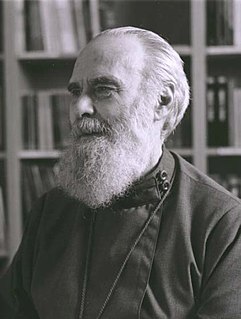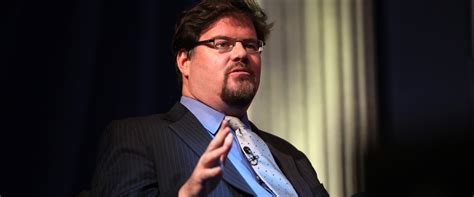A Quote by Maurice Merleau-Ponty
Thinking which displaces, or otherwise defines, the sacred has been called atheistic, and that philosophy which does not place it here or there, like a thing, but at the joining of things and words, will always be exposed to this reproach without ever being touched by it.
Related Quotes
A writer must always try to have a philosophy and he should also have a psychology and a philology and many other things. Without a philosophy and a psychology and all these various other things he is not really worthy of being called a writer. I agree with Kant and Schopenhauer and Plato and Spinoza and that is quite enough to be called a philosophy. But then of course a philosophy is not the same thing as a style.
No, nothing is sacred. And even if there were to be something called sacred, we mere primates wouldn't be able to decide which book or which idol or which city was the truly holy one. Thus, the only thing that should be upheld at all costs and without qualification is the right of free expression, because if that goes, then so do all other claims of right as well.
Philosophy and science have not always been friendly toward the idea of God, the reason being they are dedicated to the task of accounting for things and are impatient with anything that refuses to give an account of itself. The philosopher and the scientist will admit that there is much that they do not know; but that is quite another thing from admitting there is something which they can never know, which indeed they have no technique for discovering.
The way forward does not lie in amateur and comically timeless linguistic sociology which takes 'forms of life ' for granted (and this is what philosophy has been recently), but in the systematic study of forms of life which does not take them for granted at all. It hardly matters whether such an inquiry is called philosophy or sociology.
What Brahman is cannot be described. All things in the world — the Vedas, the Puranas, the Tantras, the six systems of philosophy — have been defiled, like food that has been touched by the tongue, for they have been read or uttered by the tongue. Only one thing has not been defiled in this way, and that is Brahman. No one has ever been able to say what Brahman is.
You can't will something into being. If you follow that philosophy all the way, to will something into being, that's animal style. That's what man does. But if you're looking at the philosophy correctly, and I never did - I like to think I did sometimes - you have to do it without ego, without the I. You have to separate yourself.
Here is an eternal truth. Life cannot be divided into compartments in some which God is involved and in others of which he is not involved... The fact is that God does not need to be invited into certain departments of life, and kept out of others. He is everywhere, all through life and in every activity of life. He hears not only the words that are spoken in his name; he hears all words; and there cannot be any such thing as a form of words which evades bringing God into any transaction. We will regard all promises as sacred if we remember that all promises are made in the presence of God.
It seems to me, and I am personally convinced, that the Church must never speak from a position of strength. [These are shocking words.] It ought not to be one of the forces influencing this or that state. The Church ought to be, if you will, just as powerless as God himself, which does not coerce but which calls and unveils the beauty and the truth of things without imposing them. As soon as the Church begins to exercise power, it loses its most profound characteristic which is divine love [i.e.] the understanding of those it is called to save and not to smash.
my belief in the sacrament of the Eucharist is simple: without touch, God is a monologue, an idea, a philosophy; he must touch and be touched, the tongue on flesh, and that touch is the result of the monologues, the idea, the philosophies which led to faith; but in the instant of the touch there is no place for thinking, for talking; the silent touch affirms all that, and goes deeper: it affirms the mysteries of love and mortality.
I think the most exciting thing is access to information. People's ability to document things and expose things that may have not otherwise been documented and exposed. All the information you want is available instantly, which is overwhelming, but I think can have a positive change on the political process and accountability for leaders and corporations.
There are two words that, when spoken, have the most unfathomable power to completely change your life. Two words which, when they pass your lips, will be the cause of bringing absolute joy and happiness to you. Two words that will create miracles in your life. Two words that will wipe out negativity. Two words that will bring you abundance in all things. Two words which, when uttered and sincerely felt, will summon all the forces and vibrations in the Universe to move all things for you. The only thing standing between you, happiness, and the life of your dreams is two words THANK YOU!
This is the personal side of things. When I started going through some of those transitions in my mind, just as a human being versus as an artist, I tried to... Essentially, I did this thing called Landmark Forum. It's three days of mind-expanding, existential philosophy, like Jean-Paul Sartre for everyday living. In existential philosophy they talk about "Being and Nothingness," this idea of not putting meaning onto things, and that in that way you live more purely. In other words, we form reality from these stories that we make up about our lives.









































